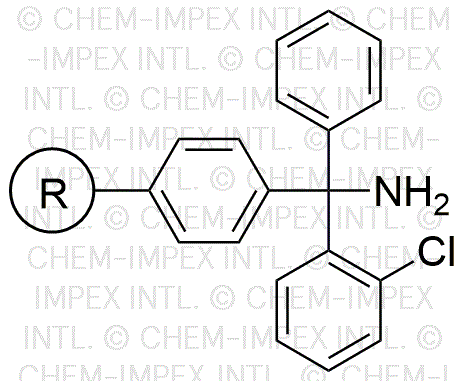Amino-2-chlorotrityl resin is widely utilized in research focused on:
- Peptide Synthesis: This resin serves as a solid support for the synthesis of peptides through solid-phase methods, allowing for efficient coupling and deprotection steps.
- Drug Discovery: It is used in combinatorial chemistry to create diverse libraries of compounds, facilitating the identification of potential drug candidates.
- Bioconjugation: The resin can be employed to attach biomolecules, such as antibodies or enzymes, to surfaces or other molecules, enhancing the development of targeted therapies.
- Analytical Chemistry: Researchers utilize this resin for the purification and isolation of specific compounds, improving the accuracy of analytical methods.
- Custom Resin Development: Its properties allow for modifications to tailor the resin for specific applications, providing flexibility in research and development processes.
General Information
Properties
Safety and Regulations
Applications
Amino-2-chlorotrityl resin is widely utilized in research focused on:
- Peptide Synthesis: This resin serves as a solid support for the synthesis of peptides through solid-phase methods, allowing for efficient coupling and deprotection steps.
- Drug Discovery: It is used in combinatorial chemistry to create diverse libraries of compounds, facilitating the identification of potential drug candidates.
- Bioconjugation: The resin can be employed to attach biomolecules, such as antibodies or enzymes, to surfaces or other molecules, enhancing the development of targeted therapies.
- Analytical Chemistry: Researchers utilize this resin for the purification and isolation of specific compounds, improving the accuracy of analytical methods.
- Custom Resin Development: Its properties allow for modifications to tailor the resin for specific applications, providing flexibility in research and development processes.
Documents
Safety Data Sheets (SDS)
The SDS provides comprehensive safety information on handling, storage, and disposal of the product.
Product Specification (PS)
The PS provides a comprehensive breakdown of the product’s properties, including chemical composition, physical state, purity, and storage requirements. It also details acceptable quality ranges and the product's intended applications.
Certificates of Analysis (COA)
Search for Certificates of Analysis (COA) by entering the products Lot Number. Lot and Batch Numbers can be found on a product’s label following the words ‘Lot’ or ‘Batch’.
*Catalog Number
*Lot Number
Certificates Of Origin (COO)
This COO confirms the country where the product was manufactured, and also details the materials and components used in it and whether it is derived from natural, synthetic, or other specific sources. This certificate may be required for customs, trade, and regulatory compliance.
*Catalog Number
*Lot Number
Safety Data Sheets (SDS)
The SDS provides comprehensive safety information on handling, storage, and disposal of the product.
DownloadProduct Specification (PS)
The PS provides a comprehensive breakdown of the product’s properties, including chemical composition, physical state, purity, and storage requirements. It also details acceptable quality ranges and the product's intended applications.
DownloadCertificates of Analysis (COA)
Search for Certificates of Analysis (COA) by entering the products Lot Number. Lot and Batch Numbers can be found on a product’s label following the words ‘Lot’ or ‘Batch’.
*Catalog Number
*Lot Number
Certificates Of Origin (COO)
This COO confirms the country where the product was manufactured, and also details the materials and components used in it and whether it is derived from natural, synthetic, or other specific sources. This certificate may be required for customs, trade, and regulatory compliance.


